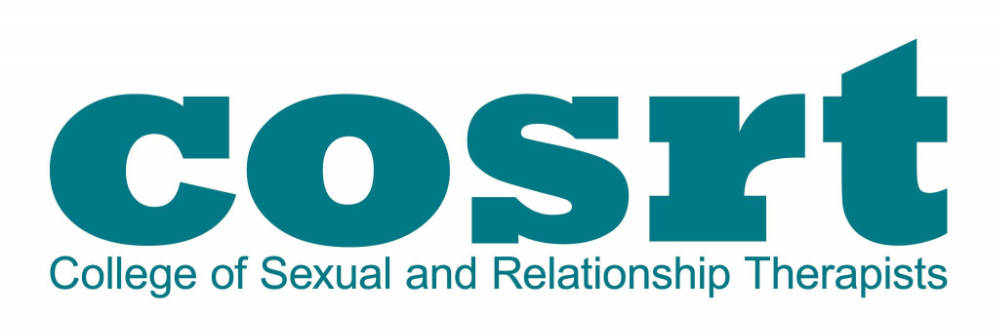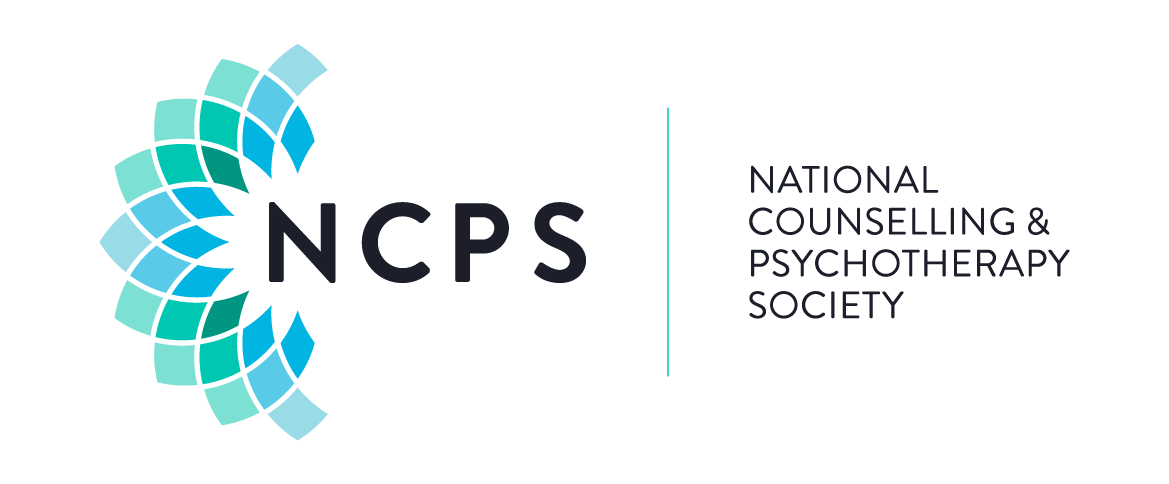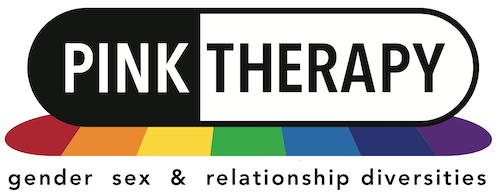An Integrative Trauma, Addiction and Psychosexual Therapist, EMDR Practitioner and Mindfulness Teacher.
Samantha is a highly skilled integrative therapist and healthcare practitioner who has extensive experience in trauma and addiction recovery. She excels in treating complex psychosexual and relationship issues, employing a blend of traditional and complementary therapies tailored to the specific needs of each client. Her practice, rooted in a holistic and humanistic approach, offers a non-judgmental, sex-positive environment.
In her independent practice, Samantha emphasises client-centred care and collaborates effectively with other healthcare professionals within a multi-disciplinary team, leveraging her long-standing professional relationships to make informed recommendations.
Her therapy sessions incorporate a diverse array of techniques such as EMDR, Cognitive-Behavioural Therapy (CBT), Motivational Interviewing, Interpersonal therapy, Psychodynamic Therapy and Psycho-education. Samantha integrates creative modalities such as Experiential Therapy, Psychodrama, Meditation and Mindfulness. She has experience working with 12 step facilitation, relapse prevention and harm reduction.
She is proficient in addressing dual diagnoses and complex needs and delivers therapy to individuals, groups, couples, and works with families and significant others. Samantha also offers bespoke intensive treatment programmes and delivers psychotherapy retreats.
Samantha delivers therapy face to face and via Zoom Monday - Friday. Her private practice rooms are based in Mayfair but therapy can be arranged at other locations.
She also provides case management services and crisis intervention.
Appointments by prior arrangement.
Therapy
Samantha delivers trauma, addiction and psychosexual therapy. These are “umbrella” terms and include multiple presentations some examples are detailed below.
Her extensive clinical experience spans a broad range of psychological issues offering therapy for:
- Neurodevelopmental disorders including attention deficit hyperactive disorder (ADHD), attention deficit disorder (ADD) and autism spectrum disorder (ASD)
- Mood disorders including depression, bipolar affective disorder.
- Anxiety disorders including generalised anxiety disorder, obsessional compulsive disorder (OCD), post-traumatic stress disorder (PTSD) and panic disorder.
- Personality Disorders including borderline personality disorder (BPD) and emotionally unstable personality disorder (EUPD)
Samantha specialises in assisting high-functioning individuals who may not necessarily seek therapy for diagnoses or specific crises but aim to optimise their everyday functioning. Her therapeutic services are tailored to help these clients develop and integrate well-structured and sustainable strategies into their daily routines, enhancing overall life management.
Her approach includes a detailed assessment of each client's lifestyle and challenges, followed by the creation of personalised strategies that focus on key areas such as setting clear personal and professional boundaries, improving communication skills, and establishing robust systems of accountability. Samantha's guidance is particularly beneficial in helping prevent burnout, a common issue among high achievers, by promoting a balanced approach to work and personal life.
Moreover, Samantha helps her clients tackle various obstacles that hinder their productivity and personal growth. Through therapy, clients enhance their self-awareness, which facilitates smoother, more structured personal development. Her interventions aim to boost self-motivation, fostering a deeper sense of self-efficacy. This comprehensive support empowers individuals to manage their day-to-day activities more effectively and confidently pursue their long-term goals.
Overall, Samantha's practice is dedicated to empowering individuals to overcome their challenges and improve their psychological wellbeing and quality of life.
Group Therapy
Samantha offers group therapy sessions where individuals come together regularly to explore their thoughts, feelings, and experiences under her guidance. This form of psychotherapy helps participants find avenues for personal growth, enhanced interpersonal skills and a deepened sense of belonging and connection.
Addressing a spectrum of concerns such as depression, anxiety, trauma, and addiction, Samantha provides a supportive and confidential setting, where individuals can share their struggles, receive feedback, and offer support, developing coping mechanisms and finding solace in shared experiences.
Family Therapy
Samantha is qualified to work therapeutically with families, significant others, and those in close relationships who are encountering difficulties that affect the entire family unit. She specialises in addressing a range of concerns, including changes in family life, parenting challenges, and issues arising from divorce or separation. These are areas where Samantha can offer effective therapeutic solutions.
In her practice, Samantha helps families and couples to better understand and support each other, enhancing communication, fostering change, and adapting to life’s challenges. She assists in exploring different perspectives within the family, enabling members to express difficult thoughts and emotions safely. This process helps everyone involved to understand each other's experiences and needs, appreciate individual and collective strengths, and collaboratively make positive changes in their relationships and lives.
Whether the issue involves the whole family or the difficulties of one member impacting everyone, Samantha provides support that can lead to significant improvements in family dynamics and personal well-being.
Trauma
Samantha is a highly skilled trauma therapist whose extensive experience enables her to offer a nuanced and effective approach to dealing with psychological trauma. Her therapeutic practice is deeply rooted in a holistic philosophy, which combines conventional psychological therapies with innovative and body-centred techniques, supported by the latest insights from neuroscience. This comprehensive approach is designed to cater to the diverse needs of individuals who have faced traumatic events, whether these are isolated incidents or multiple experiences that recurred over time.
How everyone experiences events is different regardless of the severity and it is about your own personal response. Anyone can be affected irrespective of age, race, gender and indirectly as a witness of an event. For some experiencing these feelings it can lead to Post-Traumatic Stress Disorder (PTSD). Some examples include, violence (physical, emotional, sexual), bereavement, serious accidents, bullying and illness.
Trauma manifests when individuals encounter events that are extremely stressful, frightening or distressing. These can disrupt normal psychological functioning, making daily tasks and maintaining relationships challenging. Samantha's clients may struggle with a variety of symptoms, which can include but are not limited to: intrusive thoughts that appear without warning, nightmares, vivid recollections of the traumatic event, impaired memory, difficulties with concentration, confusion, mood instability, and pronounced changes in behaviour like avoidance of places or activities that remind the individual of the trauma. Physical symptoms often accompany these psychological effects, such as persistent fatigue, sleep disturbances, unexplained aches and a heightened state of alertness that may seem like constant vigilance against potential threats.
The emotional landscape of trauma survivors can vary widely, encompassing intense feelings of anxiety, panic, detachment from others, emotional numbness, depression, guilt, shame, irritability and anger. These symptoms can profoundly affect one’s quality of life, leading to complications such as eating disorders, addictions, and compulsive behaviours, including compulsive sexual behaviour.
Samantha works with her clients to regulate their emotional responses and mitigate the impact of trauma symptoms on daily functioning. She helps clients confront and reframe their experiences in a safe and controlled environment, enabling individuals to rebuild a coherent sense of self and purpose.
Samantha's treatment modalities are varied and tailored to each client's specific needs. Her program includes individual therapy, which provides a private space for one-on-one engagement, as well as couples, group, and family therapy, which facilitate broader healing within relational contexts. Additionally, she incorporates a range of experiential techniques. Each of these practices contributes to a comprehensive therapeutic process that not only addresses the mental and emotional aspects of trauma but also the physical and lifestyle changes necessary for holistic recovery and long-term resilience.
EMDR
Samantha incorporates Eye Movement Desensitization and Reprocessing (EMDR) into her therapy sessions, utilising this well-researched approach to help clients heal from traumatic memories. Developed by Dr. Francine Shapiro, EMDR is based on the understanding that the brain has natural healing processes which can be activated to resolve emotional distress. The technique is particularly effective for conditions like PTSD and is recommended by the UK's National Institute for Health and Clinical Excellence (NICE) as a treatment for trauma.
EMDR therapy operates under the premise that many psychological issues stem from disturbing experiences that are improperly stored by the brain, isolating them from the brain's natural healing mechanisms. For some individuals events can trigger unprocessed memories to feel like they are being reexperienced.
EMDR uses stimulation while focusing on a distressing memory, with the aim to reduce its emotional impact, allowing individuals to reprocess the traumatic memories and significantly alleviate their psychological distress. The ultimate goal of EMDR is to leave individuals feeling empowered and free from the debilitating effects of past traumatic experiences, equipped to move forward positively in their lives.
Addiction
“A Problematic pattern of use and taking to excess”
Diagnostic and Statistical Manual of Mental Disorders (DSM-5)
Addiction is the inability to stop using a substance or engaging in a behaviour even though it may cause psychological or physical harm.
Substances
Alcohol, legal drugs (prescription medication or tobacco) or illegal drugs such as cocaine, heroin and cannabis.
Behaviours
Sometimes called process addictions, these can include relationships with work, food, shopping, mobile devices/social media, where a person’s engagement affects their well-being.
“Sex addiction” is the most widely used term to describe negative engagement with sexual activities. It is not an approved or recognised mental health diagnosis in the DSM-5.
The clinical term that has been agreed by International Classification of Disease (ICD-11) is Compulsive Sexual Behaviour Disorder (CSBD). Its classification is under Impulse Control Disorder, not Addiction.
Addiction therapy is a specialised form of psychotherapy designed to help individuals overcome substance use disorders and other addictive behaviours and build a path towards long-lasting recovery.
Samantha understands the complex interplay of psychological, emotional, behavioural, and social aspects of addiction, approaching addiction therapy holistically by addressing every aspect of each individual’s experience. She works collaboratively with those suffering from addiction, creating a treatment plan around the needs of the individual, identifying triggers, enabling the individual to develop healthier coping skills and increasing their self-esteem.
Samantha draws from a range of techniques, including 12-step facilitation, relapse prevention and harm reduction strategies to uncover the root causes of addictive behaviours, enable those who suffer to develop healthier coping mechanisms, and foster resilience. The importance of addiction therapy in recovery cannot be overstated, and by addressing both symptoms and underlying causes, Samantha helps people break free from the cycle of addiction and empowers them to lead healthier, more fulfilling lives. Samantha provides a structured and supportive environment where individuals can gain insight into their addiction, build a strong foundation for long-term sobriety, and reclaim control over their addiction.
Addiction doesn’t just affect the individual; it ripples through relationships, impacting partners, friends, children, parents, and colleagues. Samantha emphasises the importance of involving loved ones in the healing process. She helps navigate through difficult emotions and thoughts, fostering awareness and acceptance as key pillars of recovery. Recovery is not just about abstaining from substances or behaviours; it is about rediscovering oneself and rebuilding relationships. Samantha offers support, free from judgement as you navigate your addiction therapy journey.
Compulsive Sexual Behaviours (CSBD)
“Sex addiction” is the most widely used term to describe negative engagement with sexual activities. It is not an approved or recognised mental health diagnosis in the DSM-5.
The clinical term that has been agreed by International Classification of Disease (ICD-11) is Compulsive Sexual Behaviour Disorder (CSBD). Its classification is under Impulse Control Disorder, not Addiction.
CSBD, involves persistent and escalating patterns of sexual thoughts, urges, or behaviors that can interfere with daily life, relationships, and overall well-being, and covers sexual behaviour that is compulsive and repetitive, where one is unable to stop regardless of negative consequences. It falls within the classification of Impulse Control Disorder, not Addiction.
Some examples could be problematic behaviours with masturbation, pornography and sex workers.
Samantha works collaboratively with clients to gain an understanding of their behaviours and explore their beliefs. The treatment for compulsive sexual behaviours is challenging and Samantha works in a sex-positive way providing a non-judgmental space for clients. She believes through the work clients can identify positive change and that healthy long term relationships are achievable.
Psychosexual Therapy
Samantha’s working style is holistic and humanistic, with an open, non-judgemental and sex-positive approach to psychosexual therapy.
Some examples include:
- Sexual Violence
- Relationships / Intimacy Issues
- Loss of Desire and Arousal
- Infidelity
- Menopause
- Couples Therapy
- Gender, Sexual and Relationship Diversity (GSRD) and LGBTQ+
- Chemsex
- Sexual Dysfunctions
- Female Sexual Dysfunctions
Vaginismus, Dyspareunia, Sexual aversion disorder (SAD), Female Orgasmic disorder (FOD), Hypoactive sexual disorder (HSDD) - Male Sexual Dysfunctions
Erectile disorder (ED), Premature ejaculation (PE), Delayed ejaculation (DE), Sexual aversion disorder (SAD), Male Orgasmic disorder (MOD), Hypoactive sexual disorder (HSDD)
- Female Sexual Dysfunctions
- Compulsive Sexual Behaviours Disorder (CSBD)
Experiential Therapy
Samantha is passionate about utilising a holistic approach and is trained in various forms of Experiential Therapy. This method allows clients to express thoughts and feelings that may be difficult to verbalise, fostering a deeper understanding of themselves through the exploration of alternative perspectives.
Samantha strongly believes in the myriad benefits of experiential therapy which include boosting self-esteem, enhancing engagement in daily activities, improving cognitive functions, and building emotional resilience and social skills.
Experiential therapy involves a structured, hands-on approach that engages both the mind and body, helping clients become more aware of their emotions and overall life experience.
This form of therapy uses non-verbal expressions to communicate internal experiences, making it accessible regardless of one's artistic skills or experience. It proves particularly effective in accessing and navigating personal thoughts and feelings, helping individuals rediscover their sense of self—often obscured in the struggle with mental health issues.
Samantha applies experiential therapy across various settings including individual, couple, family, and group therapies. It encompasses a range of techniques: play therapy, art therapy, music therapy, equine therapy, psychodrama, adventure therapy. These methods allow participants to access emotions that might remain hidden or unexpressed in more conventional therapy settings.
Samantha is specifically trained in psychodrama therapy and mindfulness, techniques that enable clients to evoke, re-experience, and reflect on negative emotions to understand their origins and move beyond them. Experiential therapy is effective in treating a wide array of psychological issues such as: anxiety and stress, depression, grief and loss, ADHD, chronic pain, anger management, specific phobias, trauma and PTSD, eating disorders, relationship challenges.
Research underscores the effectiveness of experiential therapy in reducing feelings of hopelessness and enhancing mood, increasing self-forgiveness, and improving relationship dynamics, including those affected by trauma and attachment insecurities.
Mindfulness
Further enhancing her therapeutic offerings, Samantha has trained with the University of Oxford Mindfulness Foundation. She incorporates Mindfulness-based Cognitive Therapy (MBCT), which is recommended for people with recurring depression.
This approach combines mindfulness practices with cognitive therapy to help individuals become more aware of their mind and body, breaking free from the automatic pilot of rumination and self-criticism.
Mindfulness in Practice
Mindfulness-based Cognitive Therapy for depression (MBCT) is an eight-week group programme recommended in national health guidelines for people who suffer from depression, either currently, or in the past. Weekly sessions last two hours and combine mindfulness meditation with cognitive therapy exercises enabling us to become more aware of our mind and body and begin to dissolve some of our unhelpful habits of thinking such as rumination, worry and self-criticism.
MBCT is a skills-based course rather than group therapy. It cultivates the following understandings: Mindfulness starts when we recognise the tendency to be on automatic pilot, which can rob us of our potential for living life more fully. We begin to practice stepping out of automatic pilot by bringing mindfulness to aspects of everyday present-moment experience that we might normally overlook.
With greater awareness, we begin to notice how often we are lost in our thoughts and feelings. Mindfulness of the body and breathing helps us learn to recognise our thoughts, emotions, sensations, and impulses, gather the scattered mind, and return with appreciation to the here and now.
We learn that when our attention is caught up in the past or the future, we can get trapped in unhelpful patterns of thinking, feeling, and acting. Mindfulness helps us recognise these automatic reactions, understand them as normal human experiences, and bring kindness and compassion to them.
As we cultivate attitudes of interest and friendliness toward all of our experiences, whether pleasant or unpleasant, we learn skills for keeping our balance through life’s ups and downs, responding skilfully when difficulties arise, engaging with what is most important to us, and opening up to moments of joy, contentment, and gratitude, to notice small beauties and pleasures in the world around one instead of living in one's head. We learn to flourish.
Psychodrama
Psychodrama is an integrative psychotherapy, with psychodynamic, systemic, and existentialist foundations. It engages participants holistically, paying attention to behaviour, thoughts, emotion and the body. Psychodrama uses creative action methods with individuals and groups. It involves dramatic expression to explore emotions, gain insights and address conflicts offering the opportunity to take on roles, act out scenarios, and interact with others to process experiences, enhance empathy, and foster personal growth. It is often used to tackle issues like trauma, relationship difficulties or lack of self-awareness.
The aim of psychodrama is to help individuals develop a deeper understanding of themselves, others and the world around them. It is an interactive type of therapy encouraging individuals to express themselves creatively and explore new perspectives and possibilities.








